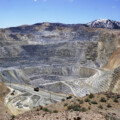For those of us living in reality, the discussion of energy policy in this election is discouraging. Even after Trump’s tariff threats demonstrated that Canada’s energy industry is a uniquely vital strategic asset, we continue to inevitably observe gnashing of teeth over the perceived conflict between increasing oil and gas production and Canada’s “net-zero” ambitions. Even The Hub identified it as one of the three key challenges for the next prime minister.
Let’s be honest with ourselves; Canada’s economy will never be net-zero.The Government of Canada defines net-zero as when “our economy either emits no greenhouse gas emissions or offsets its emissions, for example, through actions such as tree planting or employing technologies that can capture carbon before it is released into the air.” It is a fantasy developed and promoted by progressives and globalists (but I repeat myself) that will not happen because it defies the laws of physics and the realities of economics and human behaviour. Don’t take my word for it; this is a conclusion reached by energy luminaries including Daniel Yergin and Vaclav Smil. The sooner Canadians get past this fallacy that has been baked into policy discussions for far too long, the sooner we can get moving to rebuild our national economy by exploiting our competitive advantages—in particular, the abundance of resources in this country.
To be clear, this is not a comment on whether or not carbon dioxide plays a role in altering global temperatures over the long sweep of time. One can accept the premise of anthropogenic climate change and still reject the pursuit of net-zero due to its expected costs being orders of magnitude larger than its projected benefits. Political scientist and author Bjorn Lomborg has done an enormous amount of work on this topic over decades. It is difficult to read his analysis and conclude that the juice is worth the squeeze.
There have been several energy transitions over human history, from wood to wind to coal to fossil fuels to nuclear. But there has never been a case of humanity reverting from a more energy-dense form of energy to one that is less dense. Past energy transitions meant better performance at lower cost. In contrast, renewables offer less reliability at a higher cost. While solar and wind development makes sense in some applications, their intermittency means that they typically need to be backed up with dispatchable capacity, usually natural gas, in order to provide the grid uptime that we expect in a modern society. All-in cost of deployment is thus often much higher than reported.
There also hasn’t yet been a case of an older form of energy being abandoned. As one characterization of Smil’s work puts it: “We haven’t even reached peak wood, let alone peak oil or peak coal.” Instead, incremental energy sources have been additive to the entire energy stack. That is because energy is essential to life. Everything in your world is simply transformed energy, and your standard of living is defined by how much energy you have available to use. In other words, the correlation between energy consumption and economic growth is perfect. Given that all humans everywhere want a higher standard of living, this means that demand for energy is only limited by available supply. The Jevons Paradox applies; technological progress doesn’t automatically reduce resource use.
Fossil fuels should be seen as highly concentrated forms of solar energy, stored in coal, oil, and natural gas. They are what built modern civilization. Many things we take for granted just cannot be electrified or made to work using low-density forms of energy. Examples include air travel, road paving, cement production, steel manufacturing, petrochemicals, shipping, long-haul trucking, and peaker plant electricity. Inherent limits to scalability, intermittency, and low energy density make renewables impractical for many such applications. That’s why the amount of fossil fuels burned in the world continues to rise in absolute terms and has only dropped by a tiny percentage in relative terms over the last three decades, despite trillions of dollars being spent on the “energy transition.”
The lesson is that essentially all available energy ultimately gets consumed by somebody. Placing restrictions on Canada’s fossil fuel production or rendering them uneconomic through net-zero requirements simply means that our molecules—which are subject to rigorous environmental regulations—don’t reach the market. It doesn’t stop the rest of the world from exploiting their own resources, and, by dint of our small size, Canada cannot have a meaningful effect on the global environment anyway. We are at a point in time where the world’s largest economies, including the United States, are not prepared to smother their economies in pursuit of a net-zero agenda. It’s pretty stupid for Canada to continue on with this goal when most of the rest of the planet is focused on energy security and geopolitical considerations.
As prime minister, Justin Trudeau said there was no business case for Canada to provide natural gas to Germany, Greece, or Japan, so those countries turned around and bought it from Qatar and Australia. Prime Minister Mark Carney has said repeatedly that Canada should leave its energy reserves in the ground because they will be stranded after the energy transition. Surely it is the height of hubris to foretell the future in such a confident and declarative manner, particularly when the opportunity cost to your country is many billions of dollars. Nobody can reliably predict the future, but given humanity’s inexorable demand for energy in all of its forms, history would strongly suggest they are both probably wrong.
In any event, should it not be up to the investment community to determine whether there is a business case or not? The free market can make that determination pretty effectively, and if it indeed turns out that the return on investment is poor, the cost will be borne by those who took the risk. If, on the other hand, such investments turn out to be wise, the benefits will be felt countrywide.
Net-zero dogma was sort of a luxury belief in the recent past when the world was relatively stable. As we now face the end of Pax Americana, energy security and economic growth are much more critical. These will not co-exist peacefully with green ideology. Reality doesn’t negotiate; it just waits for you to catch up.










